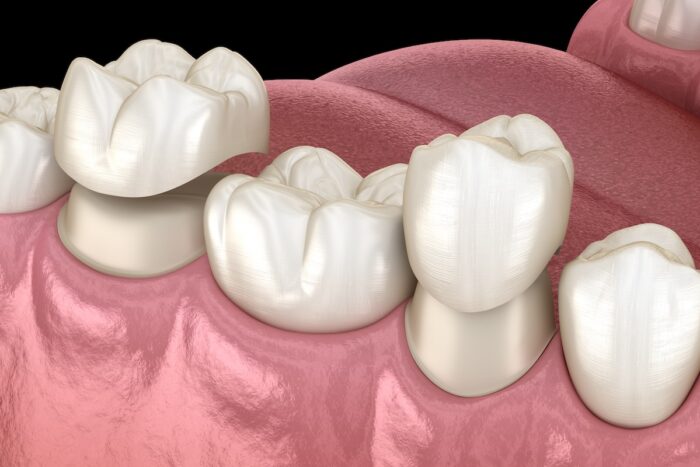Symptoms of a Failing Dental Crown
November 12, 2024 9:00 am
A dental crown is designed to restore and protect a damaged tooth, often lasting up to 10-15 years with proper care. But even with the best maintenance, crowns can eventually show signs of wear or failure. Recognizing the symptoms of a failing crown early can prevent more serious dental issues down the line. Here’s what to look out for if you suspect your crown may need attention.
Persistent Pain or Sensitivity
One of the most common signs of a failing dental crown is persistent pain or sensitivity. If you notice increased sensitivity to hot, cold, or sweet foods, it could indicate that the crown no longer fits properly or that decay is forming underneath. Pain when biting or chewing can also suggest that the crown is loose or misaligned. While minor sensitivity is normal after getting a crown, persistent discomfort isn’t something to ignore.
Visible Cracks or Chips
Crowns are made to be strong, but they’re not indestructible. Over time, everyday wear or accidental trauma can cause cracks or chips. Even a small crack can expose the underlying tooth to bacteria, leading to potential infection. If you see any visible damage on your crown, it’s best to get it examined promptly to determine if it needs repair or replacement.
Looseness or Wobbling
A secure crown should feel as solid as your natural teeth. If your crown feels loose or wobbly, it may indicate that the adhesive holding it in place is weakening or that the crown has lost its fit. This can happen if the underlying tooth structure has changed or due to gradual wear over time. A loose crown not only affects your bite but can also allow bacteria to enter, increasing the risk of decay.
Gum Irritation or Recession
Healthy gums should comfortably surround your crown without discomfort. If you experience gum irritation, swelling, or recession around the crown, it might mean the crown doesn’t fit as well as it used to. Gum recession could expose the root of the tooth, increasing the risk of sensitivity and decay.
Unpleasant Odor or Taste
A lingering bad taste or smell coming from the crowned area could suggest that bacteria has seeped beneath the crown. This can happen if the crown becomes loose or if decay has started to develop underneath. Persistent odor or taste is a clear sign that your crown should be checked as soon as possible.
Get Expert Care for Your Dental Crown at Robert J. Freitas II, DDS in Brentwood, CA
Recognizing the early symptoms of a failing dental crown can make all the difference in preserving your dental health. If you’re experiencing any of these signs, Dr. Robert J. Freitas II and the team at Robert J. Freitas II, DDS Family Dentistry in Brentwood, CA, are here to help. Contact us today to schedule an appointment and ensure your smile stays healthy and strong!
Contact UsCategorised in: Dental Crowns

